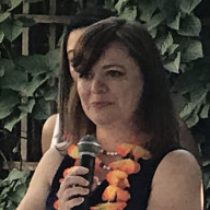Landscape Architecture for Landscape Architects › Forums › PROFESSIONAL PRACTICE › Resume Gaps: Should times of unemployment be represented on the resume?
- This topic has 1 reply, 16 voices, and was last updated 15 years, 5 months ago by
 lukad.
lukad.
-
AuthorPosts
-
December 27, 2009 at 5:10 am #171911
 Amy VerelParticipant
Amy VerelParticipantJay – happy to help! I might have been a little confusing in my reply and unfortunately I didn’t do a skills-based resume, though it’s something I’ve always considered because I have one of those somewhat “untraditional” career trajectories. I meant to say that I did the “current position” entries for my ASLA activities, etc. Send me your e-mail and I’ll forward my still-fairly-traditional resume, but you can also see what I’m referring to on my LinkedIn page – http://www.linkedin.com/in/amyverel. if I may also plug an ***excellent*** career blog I’ve found, this woman has a ton of information and gives very real career advice that cuts through a lot of the crap you find in this area:
http://www.workcoachcafe.com/2009/12/21/who-the-heck-is-screening-your-resume/
I’m afraid you’re probably right about the rational perspective (would that it was more common!) – you’re absolutely right that it could be a stumbling block, and it’s easy enough for me to advise “not bothering with THOSE sorts of people,” because that’s probably just not terribly realistic. My main point is that I hate to see anyone make apologies for their career path – gaps due to the poor economy, certain “lesser” positions, etc – because you don’t owe anyone an explanation for anything but that’s the position we all feel put in when job seeking while unemployed.
I’m no hiring manager but every work experience is valuable, even if it’s spearing trash on the interstate. Landscape architecture requires MANY business skills that you don’t learn at school or even necessarily in “the right sort of job” and while it may take some creativity to verbalize the transferable skills, they’re there and it’s your job to communicate them, PROUDLY, on your resume. Frank, for example (full disclosure: he’s my fiance) stressed a number of significant business skills from Best Buy and I think he would be crazy not to show those off.
That being said, of course you keep up on your skills and stay involved in the profession while you bide your time earning a paycheck, and be ready to discuss what you’re up to in that respect at all times because that retail customer just might know a guy or gal and boom, you’re networking. And in restructuring your resume, now’s as good a time as any to get as creative as you want in communicating your new pursuits, i.e. incorporating a relevant reading list or the like into your resume. And remember too, you’re just as likely to run into someone who couldn’t care less about this whole business anyway and wonder why you spent so much time worrying about it – I just pretty much has that happen with my (recently and very thankfully concluded) job search!
December 27, 2009 at 6:24 pm #171910 Jay SmithParticipant
Jay SmithParticipantAmy, I think the skills-based resume is a good way to go. I’ve done a little more reading on it this morning, and I think it’s worth a shot, can’t hurt. It does seem to de-emphasize gaps. My current resume is really a combination of a chrono and a skills based, but it’s almost a new year, so perhaps a fresh start is in order.
I also like the JSDesigns concept, however I’m not sure it would work as well for me personally. My LA activities during this ordeal are not verifiable in terms of certificates or references. They are basically ‘take the applicant by his word’ type of activities. And my non-LA activities would not really pertain to a JSDesigns category. And honestly, I’m not sure how a fictitious company/entity would look to a potential employer. I suppose it would either read as 1) here’s a candidate with creativity and drive or 2) here’s a candidate slingin some serious BS trying to cover his gap. It would really come down to how much meat makes up that entity, and the personality of the person receiving the resume. And like I said, I’m not sure my activities lend themself to that type of presentation.
Your last comment about spending so much time worrying about this is very true. If you meet the right person, all the worry will be for nothing. It’s unfortunate that we feel we have to spend so much time crafting the perfect resume just to get a foot in the door, considering a resume or portfolio only tells a small part of the story when it comes to a candidates potential. From my past experience at certain firms, I can remember a lot of job candidates with superior resume’s and portfolio’s being hired and heralded as the ‘missing link’ in the company or the new rising star. Those candidates almost always ended up falling below expectations and were usually shown the door with 6 months. But, it’s the game we are forced to play.
Anyhow, congrats on landing a new job. And yes I’d be interested to see your resume, my email is jslandarc@gmail.com. Thanks again for your encouraging words.
December 28, 2009 at 8:46 pm #171909 Michael SpencerParticipant
Michael SpencerParticipantWhy is this anyone’s business beyond your own? As others point out, the recession is a given. But perhaps a candidate simply wanted some time off? As an employer I’m looking at the ability of the person to handle the work that I have.
Lacunae will be at least partially explained as you conduct the interview but are ultimately immaterial and nobody’s business but your own. This question is similar to asking marital status or age. Just isn’t germane and violates a person’s privacy. If a potential employer starts digging into this I’d say that it is not a good match.
December 29, 2009 at 7:05 pm #171908 Phillip J HutchinsonParticipant
Phillip J HutchinsonParticipantTo be sure, employers are getting used to seeing lots of resumes with “gaps” on them right now. Some may see it as a negative, but I think most realize that some really talented and hardworking LA’s have been laid off in the last year or two.
I think the only bad way to handle this on a resume is to try and hide it. Be upfront, list your career positions with dates. If your most recent position ended 18 months ago, then list that date. If you’ve had a non-LA job during your time of unemployment, I’d list it as your most current, but I wouldn’t use much space explaining the position unless it actually relates to LA work. Just list the dates of employment and save the space for more relevant info.
If you’ve done any volunteering, obtained certifications, attended seminars, done any free-lance work during your unemployment, learned new software, etc. then be sure to list it somewhere on your resume and include dates. (I have a section below my employment history where I list “activities and credentials” and list 6-8 items with dates) While this isn’t the same as employment, many employers will see these items and get a better idea of what you’ve been up to lately.
I don’t think you need to be really in-your-face about the unemployment gap. I would let your resume speak for itself, and use space in your cover letter to explain why you’re a good fit for a particular position, rather than talking about what you’ve done while unemployed. The topic will come up in the interview, and that is when you really need to have some good answers to explain what you’ve been up to for the last 18 months.
December 29, 2009 at 9:58 pm #171907 Michael SpencerParticipant
Michael SpencerParticipantPhil: Very good advice; apparently you, like me, have interviewed lots of LAs over the years. And, as to the number of talented people out of work: amen, brother. It’s truly heart breaking—I can tell some stories, and I imagine others here can, too.
Your delicate characterization of my comment above as ‘in your face’ is spot on and accurate. I’m not sure why I felt so strongly about it. Of course your approach is better.
And certainly you are correct on being honest and up front. If I am interviewing, I expect candidates to be completely truthful. However, I don’t think I have ever seen an LA pad a resume or tell a fib. Professionals all.
The one thing I try to do in an interview is break through the ice and actually TALK to the candidate; easier with some than others, but once you do break through everything comes out. If you are going to be working with a person day after day in the same office and on the same team, you really need a sense of what that person is like. Her reaction to the down time would be a big part of learning that.
I look forward to hiring LAs in 2010, and I hope lots of us here do the same…I predict that at some point the really good ones (yes, they are down, too) will be sought after.
I hope this explains my comment above a little better.
December 30, 2009 at 3:53 pm #171906 Jay SmithParticipant
Jay SmithParticipantGood points Phillip and Michael. It’s interesting to note the contrast of opinions throughout this thread. I guess that just goes to show you it really comes down to the personality and perspective of the individual conducting the hiring process.
December 30, 2009 at 6:32 pm #171905Brent Jacobsen
ParticipantGreat thread and important question. I am looking for employment right now myself (recent grad), and found a lot of the replies very informative. One other angle that occurred to me today was that you could also create a “Professional Development” or “Continuing Education” section of your resume to showcase some of the activities that happened during your employment gap, even if you didn’t have a full-time design-related position. Activities like attendance at the ASLA Annual Meeting or ASLA Chapter Meetings, participation in professional lectures, one-day seminars or short-term classes, or even intermittent volunteer opportunities might fit in here. And, they could have dates associated with them that allow you to highlight your recent activities and continual involvement in the profession even if these activities are not necessarily longer-term or continuous like full or part-time work positions.
Thanks for starting the thread Jay – good luck looking for work. Hopefully the new year will bring better economic times for everyone, including employers and all of us job-seekers.
December 30, 2009 at 10:15 pm #171904 Michael SpencerParticipant
Michael SpencerParticipantBrent,
Just be sure that the new section you create doesn’t look like bull*hi*, which it kinda would. Of course I want to know if candidates have been active in anything, really, but maybe I’d prefer a simple list of dates. Is this too touchy on my part?
Look. I just find that resumés are such poor ways to summarize a person, that’s all, and anything you can do to humanize it is far better. I know that there are so-called resumé specialists out there, but I just see so many ‘canned’ resumés and it puts me off. I don’t want an abstraction. I want to know the person.
Working in a design office is special: it’s close, it’s intimate, it’s intense. The things I want to know about a candidate in terms of professional abilities require perhaps half a dozen project exhibits, no more. Enough to tell me she can do the work. I don’t think, for example, that facility with Photoshop or drafting is worthy of mentioning. It’s like a plumber saying that he can fix pipes. It is assumed. It’s also obvious in previous work.
The part I am really interested in is how you work on a team. How you react to criticism. If you have a stable home life (yes, I know, this is off limits, but still). What your expectations are in terms of the number of hours you work a week. I want to know what the kid is like. On a personal level. If there is a fit.
End of rant, I guess! It’s just that hiring and especially training are so expensive that I really try to focus. I also feel compelled to offer whatever I can to those looking for a position from the point of view of the guy on the other side of the desk.
I know I have partially hijacked the thread!
December 31, 2009 at 12:17 am #171903 Jay SmithParticipant
Jay SmithParticipantMichael, I don’t think you’ve hijacked it at all. Thanks for your thoughts, it’s good to hear that not every employer out there is so hung up on gaps. I think you are spot on, in that the interview is a much better gauge of a candidates potential to fit in. Hopefully the majority of employers out there are taking your approach and looking at the big picture, especially during this unique time.
September 24, 2010 at 6:40 pm #171902 Brock PigliaParticipant
Brock PigliaParticipantJay,
Don’t feel like your alone. I was laid off last March 2009 from a great job here in St. Louis with a large international firm. After about 6 months of searching all over again, I decided to go back to school to get my MBA in Marketing. I got a part-time job (which killed my already shattered ego), as well as an internship with a local marketing firm.
I have the same concern as you. I was told by someone I was close with at my former position that the longer you stay out of the profession (of landscape architecture), the harder it is to get back in. That just about crushed me. But, remember that this recession is hurting everyone… professionals and firms alike. I agree with the others. Do something positive and productive with the down time. Hopefully this should give you an advantage when things turn around.
I have two friends of mine who got there MBA and say it was a great addition to practicing as a landscape architect. I feel confident that when things turn around, my education will be beneficial, along with my portfolio and past work experience. It isn’t the right route for everyone, but one that I thought would suit me well. Find yours and try to stay positive.
September 26, 2010 at 9:18 pm #171901John.Dallinga
ParticipantAll,
I’ve come across a similar internal debate as to how to handle this subject on my resume and perhaps some of you could provide me with some specific insight. Typically, I follow the format of being as brief as possible (1-1.5 pages). Since my past two places of employment have not been specifically design firms, I’ve created a separate categories for “Relevant Experience” and “Other Experience” and list each employer and what LA related tasks I performed or skills I utilized. Would you keep these separate or would you rather see them combined (as in a traditional format)?
I like the idea of keeping a Master Job list for design work performed, but that seems more appropriate for marketing to a client rather than something to show a potential employer. As a student member of a faculty search committee I was exposed to several different lengths and styles of resumes/curricula vitae. Is there a format unique to architects or landscape architects that is different than the traditional 1-pager? What additional categories do you usually include?
I’d appreciate any suggestions.
September 27, 2010 at 2:25 pm #171900Pat S. Rosend
ParticipantHow the heck do you find that out from a resume? You don’t. The resume is the tool to get you in the door.
September 27, 2010 at 2:27 pm #171899Pat S. Rosend
Participantlike the idea of keeping a Master Job list for design work performed, but that seems more appropriate for marketing to a client rather than something to show a potential employer.
A future employer is your most important client! You absolutley must market yourself. It not a skill we are taught in school, but it is one you should embrace.
September 27, 2010 at 2:56 pm #171898 Jay SmithParticipant
Jay SmithParticipantBrock, thanks for your reply. I have also been considering going back to school for an MBA. What do you plan on doing specifically with your MBA? And what have your friends done with theirs? I’ve always felt that if I get an MBA, that it could potentially be beneficial in a large LA or Multi-D firm since business and marketing are so key in keeping the work flowing into the company. At the same time, I wouldn’t mind using it for an entirely different career. Just curious as to what your plans are.
September 28, 2010 at 1:16 am #171897 Andrew Garulay, RLAParticipant
Andrew Garulay, RLAParticipantIf you list your work experience in a timeline, it is you who is declaring its importance.
My belief is that the best way to write a resume is to do so from the perspective of the job offer. That does not have to only be with the cover letter, but can be the resume sheet as well. If knowing a certain program is irrelevant for a certain position for example, don’t list it as the first skill set on the resume. If a job that you had four years ago is the most closely related to the job you are going for, list it first (with accurate dates of course).Put everything in descending order from what should be the most important to the particular position you are looking to fill toward what is less important and omit what is unimportant. If you can omit enough crap and be left with only strongly applicable material relevant to the job, that is huge. That not only gives you a strong start to the person reading it, but is also disruptive to the notion of following a timeline for completeness.
Serve the main ingredients that they are looking for first and you can slide in the cereal later in the meal if you need filler – hopefully, they’ll fill up on the main course and not worry too much about the other stuff. The alternative might be to fill them up and have them move on before they have a chance to appreciate the main course.
Reading a bunch of resumes has got to be anything but fun. … better wear some high boots and roll your pants up.
-
AuthorPosts
- You must be logged in to reply to this topic.


